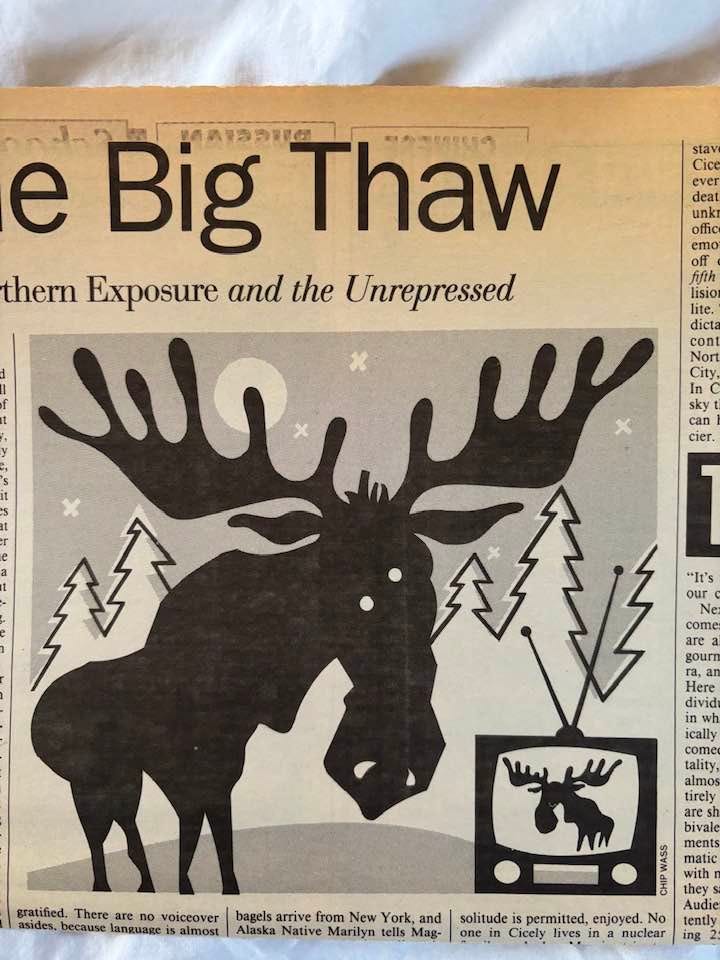Alaska
Trying a little tenderness.
The residents of of Cicely, Alaska, the magical setting of Northern Exposure (1990-95), have a tendency to cooperate. Richard and I have been traveling there at night, an episode or two at a sitting, and a peace falls over us. These days, you have to go where …



